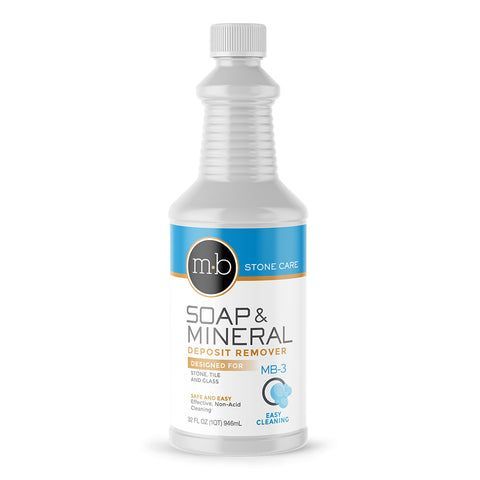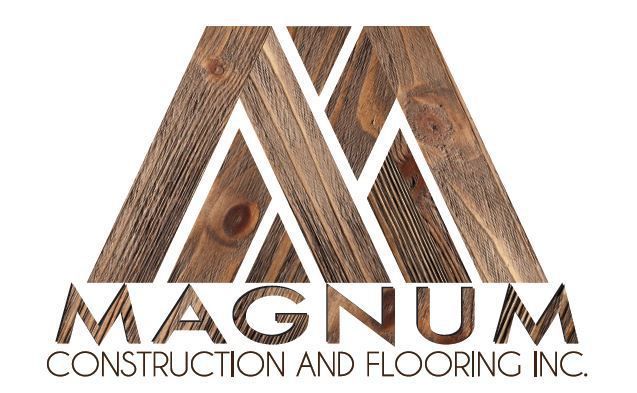Care and Maintenance Tips
Floors
We recommend dry cleaning whenever possible, either with a vacuum wand that only rides on a nylon brush head, sweeping, or a dry flat head microfiber floor cleaner.
Traditionally, many people wet mop floors and then leave them to air dry. With this method, whatever is in the water/cleaning solution will be left behind when the water dries. This can lead to ugly build up over time. Also, wet mopping a tile floor can actually make the grout look dirtier if the cleaning solution and/or the mop get soiled during the process and are not switched out or cleaned before continuing.
When more than a simple dry cleaning is needed, the next step would be a slightly damp cleaning. For example, using a flat head microfiber floor mop with just a small amount of water or neutral cleaner from a spray bottle. Go over the are until the floor is dry, working small areas at a time. Make sure to change out the microfiber pad as soon as it starts looking dirty.
Occasionally, a thorough deep cleaning can be done wet, but the best way to do this is with the proper cleaner, proper dwell time, agitation, then rinsing and extracting the solution off of the floor. This is a periodic service we would be happy to take care of for you whenever it is needed.
Showers
After we restore showers, we often get asked, “How do I keep it looking like this?” The answer: Squeegee the whole shower down to the drain (not just the glass), then towel dry the whole shower after every use. This answer may seem extreme and not very practical, but it is the answer to the question. The bottom line is, the more this preventative maintenance happens, the longer the shower will look good.
The amount of moisture in a shower makes it a harsh environment for tile, grout and caulking. Whenever a shower is allowed to air dry, all of the contaminates in the water (minerals, soaps, oils, etc) will be left behind on the shower surfaces, creating unsightly buildup. Also, the more the grout and caulking in your shower is wet, the sooner it will need to be repaired or replaced. We recommend keeping your shower as dry as possible while not being used, and for cleaning, use a neutral pH cleaner to clean the walls and floor.
If you need to clean soap residue, an alkaline cleaner can be used. Many shower and tile cleaners are acidic, so you would want to avoid those cleaners if your shower has marble, travertine or limestone in it. We can help you when you need a thorough deep cleaning and grout or caulk repair in your shower.
Countertops
With any countertop we recommend cleaning it with a neutral stone cleaner and a soft cloth. When cleaning, make sure to wipe the counter completely dry so there is nothing left to air dry. This will prevent streaks, haze and gradual buildup. Pay special attention to the areas around sinks to make sure that water isn’t left on the counter. Always wipe these areas completely dry to avoid buildup of mineral deposits. Oil and grease can stain many stone counters, so make sure to clean up any spill or spatters quickly so they don’t have a chance to soak in.
With regular cleaning and being careful to not stain or etch the counters, they can look like new for many years. If your counters need a little tune up to get back to looking their best, we can help you with that.
Marble, Travertine, Limestone
These types of stone are calcium carbonate based, so they are sensitive to acid. If anything acidic, such as citrus, vinegar, soda, coffee, wine, etc. comes in contact with these surfaces, it most likely will create an etch. Many people view these as stains, but this is actually a dull spot or area that is a result of the acidic substance eating away at the mineral content of the stone. This creates an area on the stone that is not as smooth as the surrounding area, so it looks dull. This family of stone is also relatively softer than granite and quartzite, so it can scratch and wear easier. The beauty of these stones cannot be matched by other types of stone or manmade substitutes, so they can really be a great part of your home and we can help you keep them looking their best.
Granite, Quartzite,
Slate
These types of stone are silica based, so they are not acid sensitive, meaning the don’t etch. Some of them can still be porous and be susceptible to staining, but proper sealing will prevent this problem. This family of stone is also relatively harder than calcium carbonate based stone. This means that it is more scratch resistant, especially granite and quartzite. We can help you keep your granite, quartzite and slate surfaces looking brand new with periodic maintenance.
Recommended Products

Multi Surface Cleaner with a neutral pH formula

Poultice paste for removing stains

Quickly and easily dissolves and removes soap film, scum, and hard water deposits
Home Service Referrals

Hardwood Flooring Installation & Refinishing - Tile & Stone Installations
Phone: 541-261-0643
Website: MagnumConstruction
MJS CONSRUCTION
Cabinet Finishing and Repair
Phone: 541-778-2781
Email: mjs031578@gmail.com
All Rights Reserved | Clear Shine


